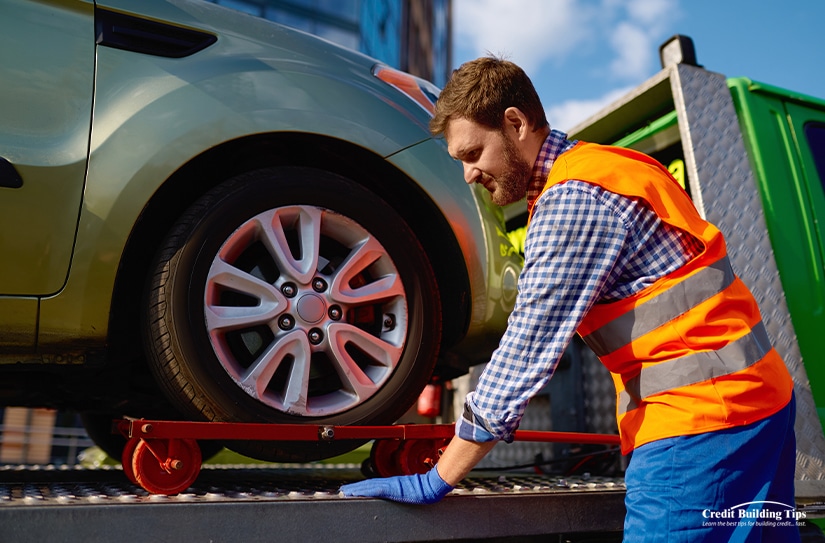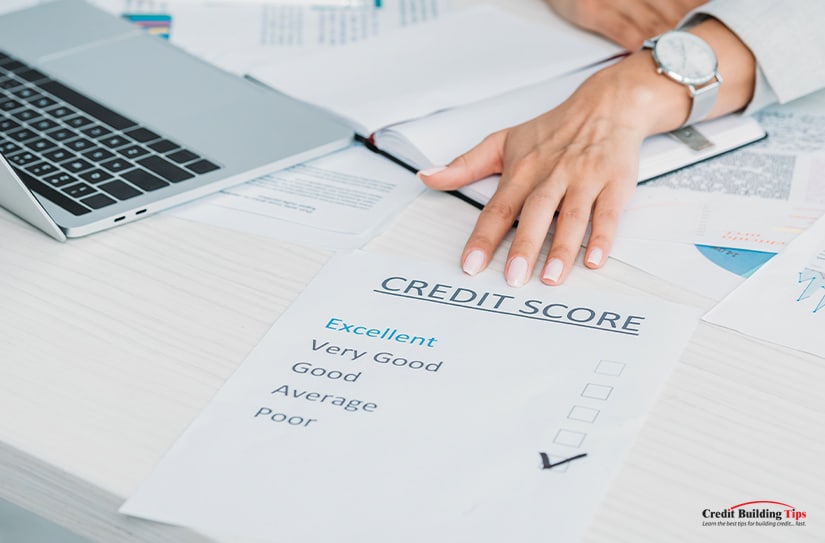Repossession is a worst-case scenario, given an even worse reputation through its use as a pop culture signifier of failure and hard times. Yet it's something that can happen to anyone in the wrong circumstances.
If you're facing repossession or worried you could if you take on a bit more of a car loan than you should, you're probably wondering what kinds of repercussions it can have on your credit.
So, let's talk about it!
When you buy a car, unless you're paying for it in cash, you're probably financing it.
Financing a car means taking out a loan, either through your own bank or through a bank affiliated with the dealer. The loan is the financial institution giving you the money to pay for the car from the dealer. When you drive off the lot, the dealer can wash their hands of the situation; it's now just between you and the bank.
In order to guarantee that they get their money in some form or another, the bank maintains a form of security: the title to the car. As long as you haven't fully paid off the loan, technically, you don't own the car: the bank does. You're simply allowed to use it until you've fully paid it off, at which point the title is mailed to you, and the car is fully yours.
What happens if you stop making payments on the car? Well, that's when repossession comes in. First, though, you enter late payment status. During late payment status, your account falls past due, and you're given the opportunity to pay up and make things right.

In many cases, especially if it's your first missed payment, your bank will cut you some slack. They don't want to leap to penalties right away since that disincentivizes you from trying to make further payments. You can pay up with no further penalties, or you can try to negotiate new terms for lower ongoing monthly payments (usually for longer periods.)
If you continue to not pay, then your loan enters default status. When a loan has defaulted, the lender can take action to try to recover their losses.
If the loan is unsecured (such as medical debt, student loans, or credit card balances), the lender will need to take you to court to recover their money. They can't repossess your education or your health, after all. Instead, they'll ask the court for a judgment, which can result in garnished wages or other liquidated assets.
 Car loans are secured loans, however. Secured means that the bank maintains the asset ownership and can take it back if you don't finish paying for it. Hence, repossession; if you haven't finished paying for the car, you still don't own it, and they can still take it back.
Car loans are secured loans, however. Secured means that the bank maintains the asset ownership and can take it back if you don't finish paying for it. Hence, repossession; if you haven't finished paying for the car, you still don't own it, and they can still take it back.Typically, lenders won't start repossession proceedings until your payments are at least 60 days late. Even then, there's often a grace period to work with to try to get back on track or negotiate new terms. Repossession terms are also governed by state law, and the lender may need to deliver you notice in advance of their intent to repossess your vehicle.
As an additional note, the lender can't damage the vehicle to take it (like breaking a window to access it), and they can't steal your personal property from inside it; you're entitled to anything you left in the vehicle.
When a bank repossesses a vehicle, they generally will try to sell it and apply the funds to pay the remaining balance of the loan. In the exceedingly rare instance where the car sells for more than you owed on the loan, you're entitled to the surplus; conversely, if the car sells for too little to cover the balance, you'll still owe the remaining amount.
So, here's a question. If you're familiar with how credit works, you know that defaulting on a loan, or even missing payments enough that you run out your grace period, will hurt your credit score. So, does having a vehicle repossessed hurt your credit too, or is the damage just from defaulting on your loan?
The answer is both yes and no.
 When an asset is repossessed due to a loan default, the repossession will be noted on your credit report. However, that in and of itself isn't necessarily mathematically calculated into your score. More often, it's more like a "soft" factor. The real damage comes from late payments, missed payments, defaults, and any court judgments that are also noted on your credit report.
When an asset is repossessed due to a loan default, the repossession will be noted on your credit report. However, that in and of itself isn't necessarily mathematically calculated into your score. More often, it's more like a "soft" factor. The real damage comes from late payments, missed payments, defaults, and any court judgments that are also noted on your credit report.Truthfully, it doesn't really matter. A repossession is inextricably linked to the other dings on your credit report, and there's not really a way to separate the two. Your car won't be repossessed unless you've fallen off your loan payments, and you won't get a repossession on your credit report without those blemishes already being there.

So, your credit will start being hit before repossession is reached and will still be damaged afterward.
A repossession and all of the associated damage can tank your credit score by as much as 150 points (if it's relatively high to start) or something closer to 50 (if your score is only fair or lower.) It's a significant hit that lingers for nearly a decade, so it's better to do what you can to handle it before it reaches that point.
Car loans are among the largest single purchases many people ever make (second only to houses in many cases), so they have a serious impact on your credit.
 Much like just about everything else on your credit report, a repossession will linger for seven years.
Much like just about everything else on your credit report, a repossession will linger for seven years.There are ways to try to get it removed earlier, but they're inconsistent and generally aren't applicable unless you are able to recover your car before it is sold off and repay your loan.
If you are able to negotiate and pay off your loan after falling into default, you may be able to get a repossession removed from your credit report early. You likely won't be able to completely remove every blemish, but some of them can be erased in the right circumstances.

Generally, there are only three ways for a repossession to be removed from your credit report.
It's generally a bad idea to file a dispute over something that is accurate in the hopes that a paperwork error works out in your favor. It burns bridges and can make future disputes more difficult, even if they're more warranted.
Sometimes, if you fear falling into default and your car being repossessed, you may participate in a voluntary repossession. A voluntary repossession is when you willingly return the vehicle to the lender instead of waiting until they're forced to get it.
A voluntary repossession is still a repossession, however, and it still affects your credit in the same way. It may save you a small amount of money (the lender doesn't have to get the vehicle towed and stored, which are fees they pass on to you), and it can save you stress emotionally, but it's still not great.
 The best it can do, really, is build a bit of good grace with your lender; you're working with them, not fighting them, and that counts for something.
The best it can do, really, is build a bit of good grace with your lender; you're working with them, not fighting them, and that counts for something.
A better solution is generally to try to sell the car instead. If you can sell the car privately for more than the lender would auction it for, you can apply that money towards paying off the loan. It still leaves you without a car – and maybe some outstanding loan balance – but it's better than a full repossession. Unfortunately, it's not always possible; the bank may not be willing to sign over the title to someone else when you haven't paid it off.
If you're worried about your car being repossessed, you may be able to take steps to mitigate the problem before it comes to that point.
First, analyze your situation and see if you can isolate a particular reason for your financial hardship. Sometimes, a tough but doable action (like cutting out a vice or habit) can save you enough money to rebalance your finances.
Sometimes it's obvious; a lost job, a medical issue, unexpected hardship, and other problems can lead to cascading failure.

In these cases, you should do what you can to negotiate with every source of bills you have.
There are many programs available to help people buy some time to recover from health problems or find a new job. Taking advantage of them is stressful in its own way, but it's better than resisting assistance and falling even more behind.
You can also consider informal and temporary solutions, such as asking friends and family for help, setting up a GoFundMe, or selling off other assets to handle immediate obligations. It's not always possible, of course, but many people have more leeway than they think they do if they look for it.
Repossession is generally a last resort for everyone involved. Lenders know that, without a vehicle, it becomes exponentially harder for you to recover and repay your obligations. They also know that repossessing and selling a vehicle is expensive, time-consuming, and unlikely to fulfill the full value of a loan. As such, they tend to be willing to cut you slack or take actions that can give you more leeway if you ask.
If you ever have any further questions credit-related, whether about building credit, fixing credit, or similar, please do not hesitate to reach out and contact us! We'll gladly answer any of your potential questions, and would love to assist you however possible!